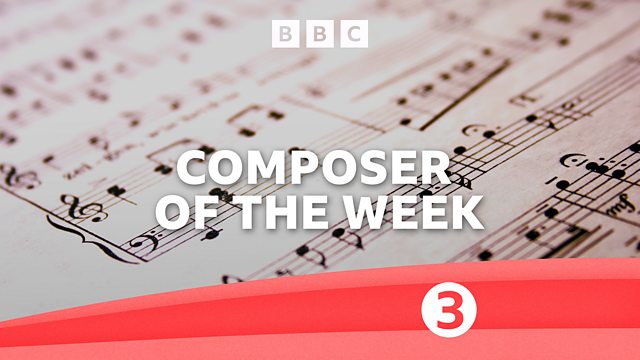
Wesley the virtuoso
Donald Macleod traces Samuel Wesley's journey as a performer of both the violin and keyboard.
Donald Macleod traces Samuel Wesley’s journey as a performer of both the violin and keyboard.
Samuel Wesley was a child prodigy, and it was the older composer William Boyce who said of the boy that he was the English Mozart, and that he had dropped down from heaven. Wesley’s star speedily ascended to the heights from an early age as both performer and composer, but with issues surrounding his often extreme character, and also his health and morals, this ascendency was not to last. His popularity went in and out of fashion during his lifetime, and trying to secure a permanent position as an organist was something which eluded him for a long time. However, he was one of Britain’s leading musicians, mixed in the highest circles, and was responsible for promoting the largely unknown J. S. Bach to these shores. Towards the end of his life, famous musicians and composers sought Wesley out and even Mendelssohn asked the famed organist Samuel Wesley to play for him. We’re only just beginning to understand Wesley’s importance to the development of British classical music, and many of his substantial works, including numerous concertos for piano, organ, and violin, and large scale works for choir and orchestra, all still remain to be recorded.
In this programme, Donald Macleod delves into Samuel Wesley’s career as a performer. His older brother Charles was a child prodigy, but Samuel soon overtook his brother, so that by his sixth birthday, not only had he learnt Handel oratorios by heart, but he was also starting to compose his own oratorios. As a performer, Wesley would take to both the violin and the organ, often as a lad giving recitals at distinguished venues such as Bath Abbey. However, things took a downward turn when as a young man Wesley was left a legacy, which meant for a period he didn’t have to pursue a career as a musician. The result was a loss of focus, and he gave up the violin altogether. Later in life he became famous for his ability as an organist, often giving concerts around the country, and he even took up the violin again in order to play and promote the music of Bach.
Sonatina Op 4 No 1
Timothy Roberts, piano
Sonatina Op 4 No 2
Timothy Roberts, piano
Duet for the organ
Hans Fagius, organ
David Sanger, organ
Symphony in E flat
London Mozart Players
Matthias Bamert, conductor
Arrangement with Variation of Rule Britannia
Jennifer Bate, organ
Rondo on God rest you merry, Gentlemen
Timothy Roberts, fortepiano
All go unto one place
The Choir of New College Oxford
Edward Higginbottom, director
Produced by Luke Whitlock, for ����ý Wales
Last on
Music Played
-
![]()
Samuel Wesley
12 Sonatinas for keyboard, Op 4 (Nos 1 and 2)
Performer: Timothy Roberts. -
![]()
Samuel Wesley
Grand Duet in C major for organ
Performer: Hans Fagius. Performer: David Sanger.- BIS : CD273.
- BIS.
- 1.
-
![]()
Samuel Wesley
Symphony in E flat major
Orchestra: London Mozart Players. Conductor: Matthias Bamert.- CHANDOS : CHAN-9823.
- CHANDOS.
- 10.
-
![]()
Samuel Wesley
Variations on 'Rule Britannia' for organ
Performer: Jennifer Bate.- SOMM CD 036.
- SOMM.
- 20.
-
![]()
Samuel Wesley
Rondo on 'God Rest Ye, Merry Gentlemen'
Performer: Timothy Roberts.- Helios CDH55325.
- Helios.
- 12.
-
![]()
Samuel Wesley
All go unto one place
Choir: Choir of New College Oxford. Conductor: Edward Higginbottom.- CRD 3510.
- CRD.
- 7.
Broadcast
- Wed 5 Feb 2020 12:00����ý Radio 3
Beethoven Unleashed – the box set
What was really wrong with Beethoven?
Composers A to Z
Who knew? Five eye-opening stories from Composer of the Week
Five reasons why we love Parry's Jerusalem
What is the strange power of Jerusalem which makes strong men weep?
A man out of time – why Parry's music and ideas were at odds with his image...
The composer of Jerusalem was very far from the conservative figure his image suggests.
Composer Help Page
Find resources and contacts for composers from within the classical music industry.





